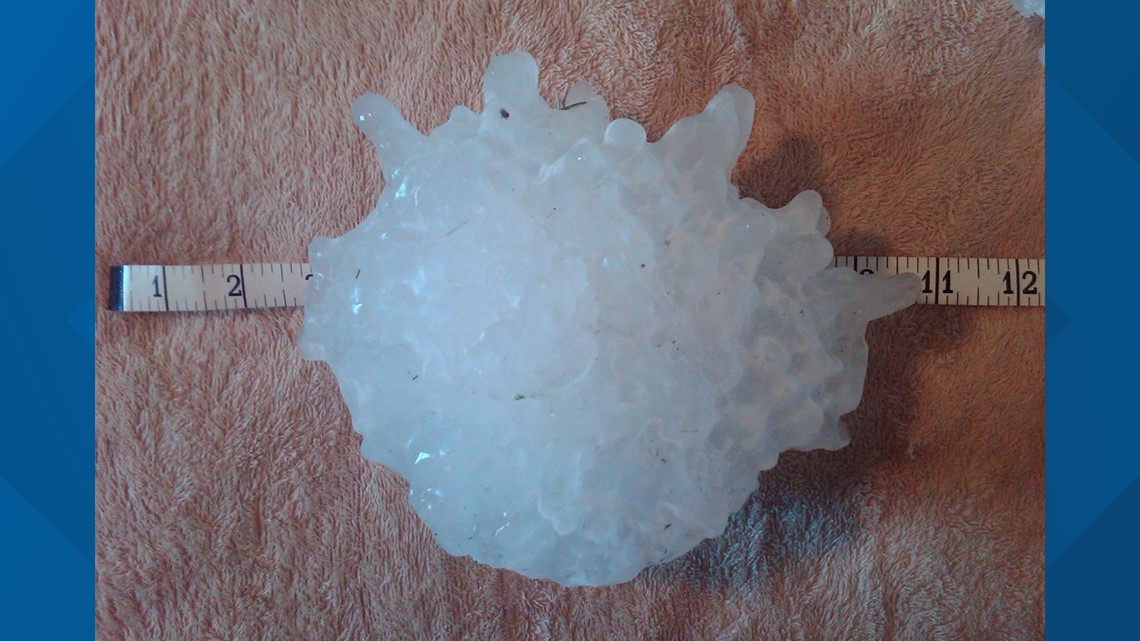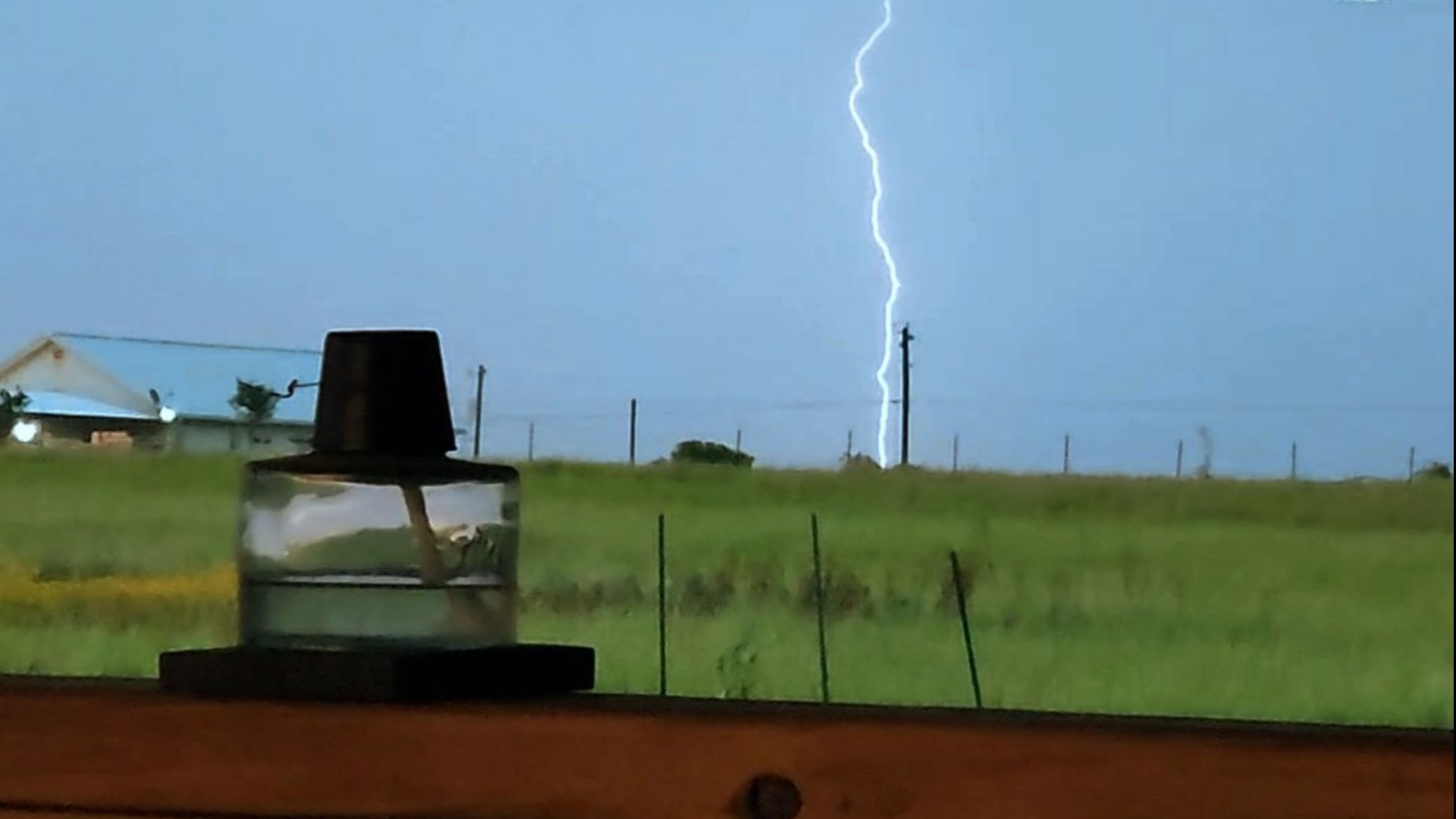Many people in Texas, ranging from South to Central, were in for a weather surprise when large hailstones, some the size of baseballs, fell during severe weather this week.
But when's the last time you experienced large hail? How does it get that large? First, we must understand what hail is and how it forms.
What is hail?
Hailstones, or hail, is a frozen form of precipitation that happen inside of thunderstorm updrafts, according to NOAA National Severe Storms Laboratory.
In other words, hail forms when thunderstorms carry raindrops upward into parts of our atmosphere where it's extremely cold, causing the raindrops to freeze into hailstones, according to the National Weather Service (NWS).
Hailstones then grow when liquid water drops collide into it during the updraft then freeze onto the hailstone's surface, NOAA said.
It comes crashing into the ground when the hailstone becomes too heavy or when the updraft weakens, NOAA continued.
Just how big can hail get?
Fun fact: Per NWS, the largest-sized hailstone recorded in the United States measured about 8 inches in diameter, or 18.625 inches in circumference, and weighed around 1.9 lbs.! This hailstone fell on July 23, 2010 in Vivian, South Dakota.


Common sizes of hail
- Pea = 1/4 inch diameter
- Mothball = 1/2 inch diameter
- Penny = 3/4 inch diameter
- Nickel = 7/8 inch
- Quarter = 1 inch — hail quarter size or larger is considered severe
- Ping-Pong Ball = 1 1/2 inch
- Golf Ball = 1 3/4 inches
- Tennis Ball = 2 1/2 inches
- Baseball = 2 3/4 inches
- Tea cup = 3 inches
- Softball = 4 inches
- Grapefruit = 4 1/2 inches
What should you do when it hails?
Hail can create a lot of damage, depending on the size of the stone. Hailstones could damage homes or cars, and can even be deadly.
Remember to be weather aware if the KENS 5 weather team tells you there may be hail with severe storms. Be sure to also make sure you are protecting your people, pets and property by making sure everyone is inside and that your vehicles are parked under coverings.

